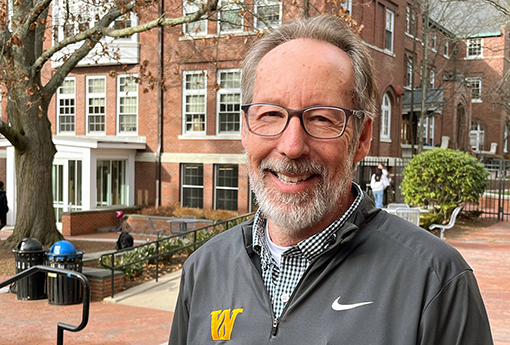
Wheeler Students Help Launch Rhode Island’s First Youth Financial Policy Council
October 16, 2025
Wheeler junior Raahil G. ’27 was attending the 2025 Rhode Island Finance and Econ Challenges Awards Ceremony with some of his fellow Wheeler students last spring when he couldn’t help but notice that only a handful of public schools from low-income districts were represented among the competition’s top performers compared to neighboring independent schools. That moment sparked a question: How could more students, especially from underserved communities, gain access to financial education and a voice in shaping it?
Determined to take action, Raahil reached out to Kevin Smith, president of the Rhode Island Council for Economic Education, to ask two key questions: “How do we get the youth involved in financial policy in Rhode Island?” and “How can we get a seat at the table to ensure that youth financial literacy programs are well-funded and well-taught?”
Mr. Smith advised Raahil to galvanize peer support, so he recruited fellow Wheeler students Alex F. ’26, Javius H. ’27, and Austin N. ’27, all members of Wheeler’s Upper School Economics and Finance Clubs, to help develop and pitch the idea of a Youth Financial Advisory Board to the Rhode Island Treasury.

“We are mirroring a similar model happening in other states,” explains Raahil. “A friend of mine who lives in Kentucky was able to pass a bill to support financial literacy education in his state, which was inspiring and motivating for us. By establishing a youth council in Rhode Island, we want to serve as the direct connection between the youth population in Rhode Island and the State House, and be able to advise the treasury on matters that affect us — or will later on. Bills and laws that the treasury passes affect families, which in turn impact their kids. And we, the youth, will be tomorrow’s taxpayers.”
Over the summer, Raahil, Alex, Javius, and Austin submitted a proposal to the Office of the Rhode Island General Treasurer. After several meetings and discussions, their plan to establish a Youth Financial Policy Council (YFPC) was approved and will officially launch in January 2026.
The YFPC’s mission is to promote equitable financial literacy education throughout the state and to provide a formal, institutionalized youth voice in economic policy discussions. As a youth-led advisory body, the council will partner with state agencies, school districts, community organizations, and policymakers to improve the reach and quality of financial education — especially in underserved communities.
To that end, its current priorities are: institutionalizing a youth voice in policy, expanding awareness and participation, and ensuring equity and modernization in the financial literacy curriculum. “At the moment, one of our primary tasks is recruiting students statewide and prioritizing underrepresented and lower-income communities in Central Falls, Pawtucket, and East Providence,” says Javius. The group hopes to motivate students from various districts to join the council and help collect and synthesize input that they can present to the Treasury.
For Javius, who lives in East Providence, the motivation is deeply personal. “For me, it’s about giving the people I love and care about a voice.”
“It is important that everyone is represented and that every voice is heard,” adds Alex.
Raahil agrees. “Hearing about the tariffs war when international economic tensions were very high made me feel very small,” he says. “No one was explaining it to me or how it was going to affect me. Through this work, I want to empower myself and other young people and create a space and a platform where we can be heard.”
Austin also notes the impact of their mission beyond Wheeler: “Financial literacy is highly correlated with success after graduation. I think that it is essential to institute a youth voice in policy, especially concerning finance.”
When asked how Wheeler prepared them to take on this initiative, the Upper Schoolers pointed to the school’s emphasis on confidence, community, and advocacy.
“There is an amazing Upper School student body at Wheeler. I mean this in the best way possible, but we don’t fear authority,” shares Raahil. “I dab Mr. Henderson up every time I see him. I give Ms. Henneman hugs and fist bumps when I see her. Even though they are the dean of students and the head of Upper School, we don’t feel very intimidated by them. That aspect of the Wheeler community allowed me to approach individuals like the secretary of the treasury. Wheeler has trained me to use my voice and not fear.”
“Because of Wheeler, I’m not scared of taking on new opportunities I’m interested in,” adds Alex. “It has helped nurture my confidence, which has allowed me to pursue passions and other endeavors, like real estate.”
In addition, Javius credits his Wheeler classes, particularly the 8th-Grade Cityside Program, for preparing him for long-term projects. “The project I worked on then was massive; it was a year-long,” he says. “Cityside taught me that things take time, and it definitely prepared me for moments like this and projects like the Youth Financial Policy Council.”
Javius and his peers from the Youth Financial Policy Council hope that one day, their new initiative may help every Rhode Island student graduate with a strong foundation in financial literacy and a greater sense of empowerment to shape their own economic futures.

